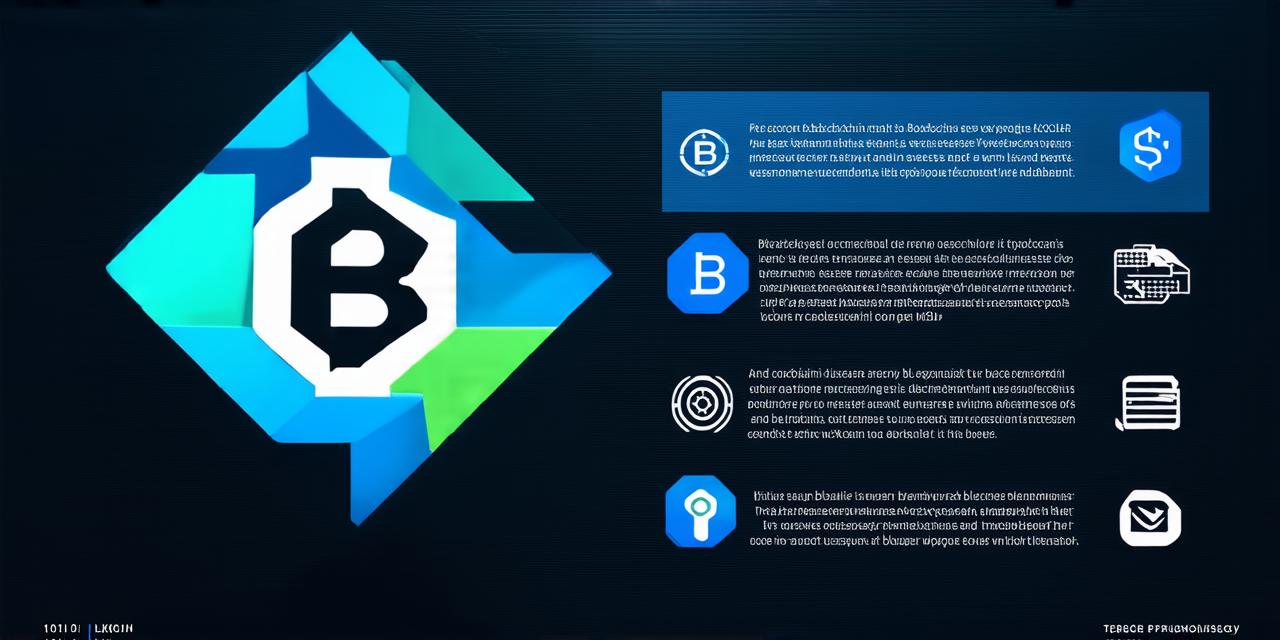Blockchain technology has taken the world by storm since its inception, revolutionizing industries ranging from finance and healthcare to logistics and supply chain management.
As a developer, it’s essential to understand the basics of blockchain technology, including what it is, how it works, and the benefits and limitations it offers.
What is Blockchain Technology?
At its core, blockchain technology is a decentralized, distributed ledger that records transactions across multiple computers in a secure and transparent manner. It allows for the creation of a tamper-proof and immutable record of events that cannot be altered or deleted once they have been entered into the system.
The concept of blockchain can be traced back to 2008 when an unknown individual or group under the pseudonym Satoshi Nakamoto introduced it as a way to facilitate secure, decentralized financial transactions without the need for intermediaries such as banks. Since then, the technology has evolved and been adapted to various industries, including supply chain management, logistics, healthcare, and more.
How does Blockchain Technology Work?
The underlying principle of blockchain technology is that it allows for a decentralized network of computers to work together to maintain a secure and transparent ledger of transactions. This is achieved through the use of blocks, which contain a record of multiple transactions. Each block is cryptographically linked to the previous block, creating an unbreakable chain of information that cannot be altered or deleted once it has been entered into the system.

The process of adding new transactions to the blockchain involves several steps. First, a transaction is initiated by a user or organization and broadcasted to the network. The network then verifies the transaction’s validity and adds it to a block. Once the block is full, it is cryptographically linked to the previous block, creating a new chain of information that cannot be altered or deleted.
One of the key features of blockchain technology is its decentralized nature. Unlike traditional databases, which are managed by a single entity, blockchains are maintained by a network of computers that work together to validate transactions and maintain the integrity of the ledger. This makes it virtually impossible for any one individual or group to manipulate the system, ensuring that the information recorded on the blockchain is accurate and trustworthy.
The Benefits of Blockchain Technology
Blockchain technology offers numerous benefits to businesses and organizations, including:
- Increased Security: By utilizing cryptographic algorithms and decentralized networks, blockchain technology provides a high level of security that is difficult to breach. This makes it ideal for industries such as finance and healthcare, where data privacy and security are of utmost importance.
- Improved Transparency: Blockchain technology allows for the creation of a transparent ledger that records all transactions, making it easy to track and verify the authenticity of information. This can help to reduce fraud and increase accountability in industries such as logistics and supply chain management.
- Reduced Costs: By eliminating the need for intermediaries such as banks, blockchain technology can significantly reduce the costs associated with financial transactions. Additionally, the use of smart contracts can automate many of the processes involved in contract execution, further reducing the need for intermediaries and increasing efficiency.
- Increased Efficiency: Blockchain technology allows for the creation of a decentralized network that can process transactions quickly and efficiently without the need for intermediaries. This makes it ideal for industries such as logistics and supply chain management, where fast and accurate information is critical.
